Sugar-sweetened beverage intakes among adults between 1990 and 2018 in 185 countries
- PMID: 37788998
- PMCID: PMC10614169
- DOI: 10.1038/s41467-023-41269-8
Sugar-sweetened beverage intakes among adults between 1990 and 2018 in 185 countries
Abstract
Sugar-sweetened beverages (SSBs) are associated with cardiometabolic diseases and social inequities. For most nations, recent estimates and trends of intake are not available; nor variation by education or urbanicity. We investigated SSB intakes among adults between 1990 and 2018 in 185 countries, stratified subnationally by age, sex, education, and rural/urban residence, using data from the Global Dietary Database. In 2018, mean global SSB intake was 2.7 (8 oz = 248 grams) servings/week (95% UI 2.5-2.9) (range: 0.7 (0.5-1.1) in South Asia to 7.8 (7.1-8.6) in Latin America/Caribbean). Intakes were higher in male vs. female, younger vs. older, more vs. less educated, and urban vs. rural adults. Variations by education and urbanicity were largest in Sub-Saharan Africa. Between 1990 and 2018, SSB intakes increased by +0.37 (+0.29, +0.47), with the largest increase in Sub-Saharan Africa. These findings inform intervention, surveillance, and policy actions worldwide, highlighting the growing problem of SSBs for public health in Sub-Saharan Africa.
© 2023. Springer Nature Limited.
Conflict of interest statement
The investigators did not receive funding from a pharmaceutical company or other agency to write this report. L.L.C reports research funding from the Gates Foundation, the American Heart Association, and Consejo Nacional de Ciencia y Tecnología in Mexico, outside of the submitted work. R.M. reports research funding from the Gates Foundation; and (ended) the U.S. National Institutes of Health, Danone, and Nestle. She also reports consulting from Development Initiatives and as IEG chair for the Global Nutrition Report, outside of the submitted work. F.C., J.Z., and P.S. report research funding from the Gates Foundation, as well as the National Institutes of Health, outside of the submitted work. V.M. reports research funding from the Canadian Institutes of Health Research and from the American Heart Association, outside the submitted work. J.R.S. reports research funding from the Gates Foundation, as well as the National Institutes of Health, Nestlé, Rockefeller Foundation, and Kaiser Permanent Fund at East Bay Community Foundation, outside of the submitted work. S.B.C. reports research funding from the U.S. National Institutes of Health, the U.S. Department of Agriculture, the Rockefeller Foundation, the U.S. Agency for International Development, and the Kaiser Permanente Fund at East Bay Community Foundation, outside the submitted work. D.M. reports research funding from the U.S. National Institutes of Health, the Gates Foundation, the Rockefeller Foundation, Vail Innovative Global Research, and the Kaiser Permanente Fund at East Bay Community Foundation; personal fees from Acasti Pharma, Barilla, Danone and Motif FoodWorks; is on the scientific advisory board for Beren Therapeutics, Brightseed, Calibrate, Elysium Health, Filtricine, HumanCo, Instacart, January Inc., Perfect Day, Tiny Organics, and (ended) Day Two, Discern Dx, and Season Health; has stock ownership in Calibrate and HumanCo; and receives chapter royalties from UpToDate, all outside the submitted work. J.E.M. declares no competing interests.
Figures


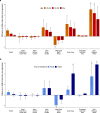
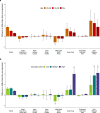
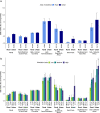

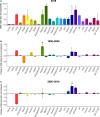
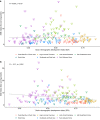
References
-
- Klemm S. Ethics: health equity and dietetics-related inequalities. J. Acad. Nutr. Diet. 2022;122:1558–1562. - PubMed
Publication types
MeSH terms
LinkOut - more resources
Full Text Sources

